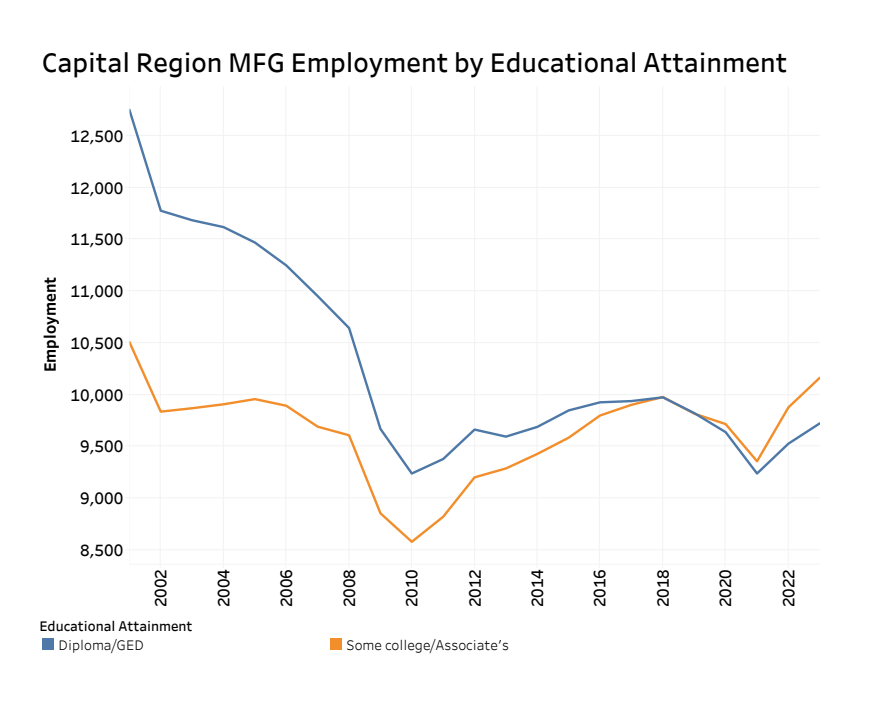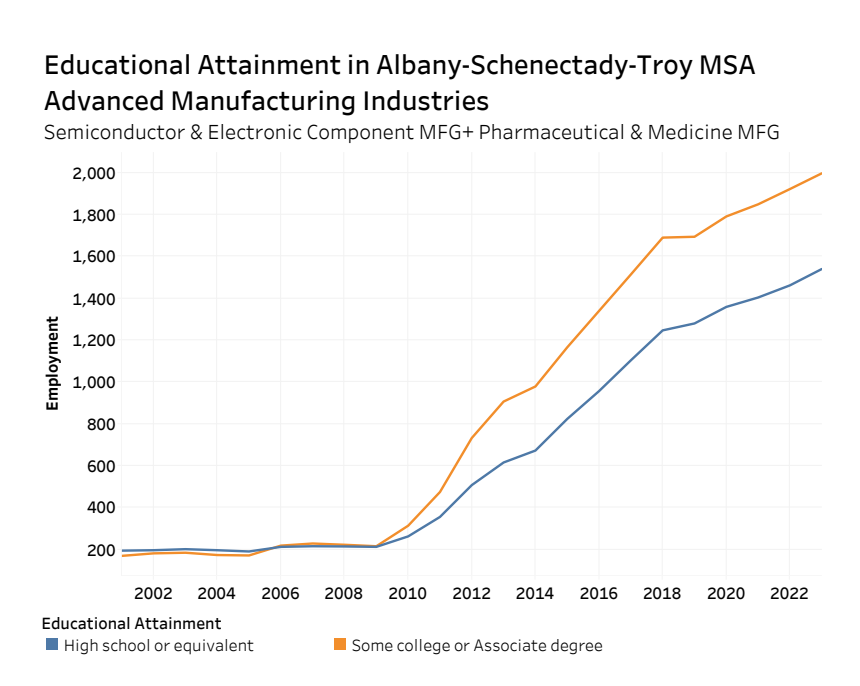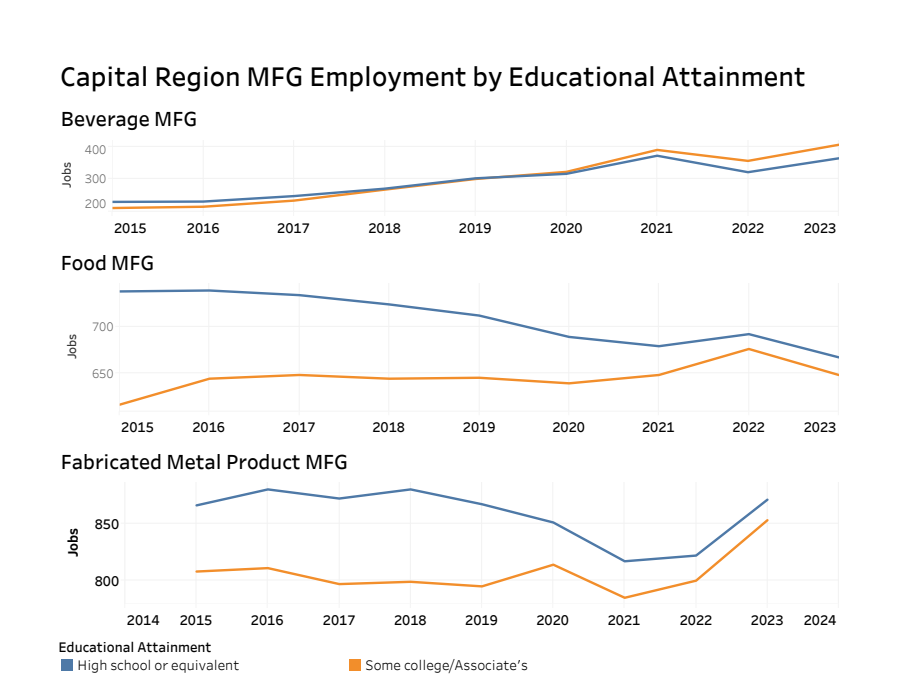Capital Region MFG Workforce with Associate’s Eclipses High School Grads

A Hudson Valley Community College advanced manufacturing class.
Workers with some college or an associate’s degree are increasingly outnumbering those with a high school diploma or equivalent (e.g., GED) in the Capital Region’s manufacturing sector, according to a Center for Economic Growth (CEG) analysis of data from the U.S. Census Bureau’s QWI Explorer.
In 2008, the eight-county Capital Region’s manufacturing sector employed 1,035 more workers with a high school diploma or equivalent than those with some college or an associate’s degree, averaging 10,644 to 9,609, respectively. However, between then and now, the region’s manufacturing sector became more advanced through the development of GlobalFoundries’ Fab 8 in Malta and the vast expansion of Regeneron Pharmaceuticals’ East Greenbush production operations.

By 2023, the region’s manufacturing sector averaged 10,164 employed workers with some college or an associate’s degree, compared to 9,724 with a high school diploma or equivalent. In 2008, the Albany-Schenectady-Troy metropolitan statistical area’s semiconductor and electronic device and pharmaceutical and medicine manufacturing industries employed nearly equal numbers of employees with the two types of educational attainment. However, by 2023, those two industries combined had 1,997 workers with some college or an associate’s degree, compared to 1,540 with a high school diploma or equivalent – a difference of 457.

In 2020, the Capital Region’s beverage manufacturing industries started employing more workers with some college or an associate’s degree than those with a high school diploma or equivalent. Several other less-advanced manufacturing industries in the region are also close to seeing their ranks of employees with some college or an associate’s degree surpass those with a high school diploma or equivalent. They include food manufacturing (648-667, respectively), fabricated metal product manufacturing (853-871) and furniture and related product manufacturing (280-312).

CEG INITIATIVES
As a New York State MEP center, CEG also helps Capital Region manufacturers increase their productivity by providing a menu of technical support services, such as Lean Enterprise Training, ISO Certification Assistance, Technology-Driven Market Intelligence, and CoreValue benchmarking assessments.
CEG also supports workforce development for manufacturing by serving as a group sponsor for apprenticeship programs as well as coordinating with secondary schools and colleges and universities to align their curricula with talent needs of local manufacturers.
Don’t miss these insights into the trends that are shaping the Capital Region’s economy. Sign up for CEG’s e-news and follow us on:













